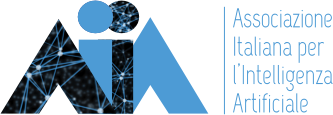“Philosophical Aspects of Artificial Intelligece” FIL-AIxIA
Coordinatori
-

Fabrizio Giacomelli
Mediavoice S.r.l.
Coordinator
-
Silvano Tagliagambe
Università di Sassari
Coordinator
Coordinators
Ambito e Obiettivi
The objective of the working group "Philosophical aspects of Artificial Intelligence" (FIL-AIxIA) is to promote the debate on Artificial Intelligence from a philosophical point of view, in particular to explore the following topics:
1. Philosophical Fundamentals of AI: Starting from the Philosophical teories that are at present the basis of AI, propose a contribution towards a necessary conceptual-terminological clarification of the field.
2. Ethics and social effects of AI: Investigate ethical question raised by the development of AI, like privacy concerns, survaillance, Indagare le questioni etiche sollevate dallo sviluppo dell'IA, come la privacy, surveillance, accountability for automated decisions and the impact on employment. Assess how AI affects the social fabric: inequalities, access to information and polarization. Consider how AI can be used to promote social good and mitigate negative effects.
3. Relation between AI and formation/conscience: Consider how AI is changing our approach to training and knowledge, proposing new paradigms and solutions to fill the current AI skill gaps among teaching staff.
4. Future of AI and humanity: Speculate on potential futures of AI, including technological singularity, human-machine integration, and possible dystopian or utopian scenarios. Discuss how humanity should prepare for or react to these possible futures.
5. Development of philosophy of AI: Contribute to the creation of a body of philosophical knowledge that specifically addresses AI, geared towards the emergence of a new branch of philosophy dedicated to exploring the theoretical and practical questions raised by artificial intelligence.
6. Encourage interdisciplinary dialogue: Promote collaboration between philosophers, computer scientists, engineers, sociologists, psychologists, linguists and legal experts for a necessary holistic understanding of the philosophical aspects of AI.
To achieve these objectives, the working group will periodically organize meetings, seminars and conferences. The Working Group will have to maintain an open approach by welcoming different perspectives and stimulating constructive dialogue.
Iniziative ed Eventi
Artificial Intelligence: definitions, warnings and applications 01/04/2025
On the occasion of the All Digital Week SGI (Stati Generali dell'Informazione) is inviting you to an in-depth event on Artificial Intelligence. The meeting will be held on April 1, 2025, from 10:00 AM to 12:30 PM.
During the event, we will explore the definition of intelligence, moving beyond traditional interpretations, given that we have a better understanding of the concepts that form the term Artificial Intelligence.
Distinguished experts will speak: Fabrizio Giacomelli, President of Mediavoice; Luca Sambucci, Industrial Board Member of the Italian Association for Artificial Intelligence; Fabio Del Frate, Professor at the University of Rome-Tor Vergata; and Fulvio Ananasso, President of SGI.
This event offers a unique opportunity to deepen your knowledge of AI, interact with industry experts, and participate in a discussion about the digital future.
The event will be held online. Registration is required to participate at the following link: https://us02web.zoom.us/meeting/register/zA9KLPRgRna4e1IxWFNWMA. The recording will be available on the SGI YouTube channel: https://www.youtube.com/channel/UCiYpXnkBSY6nN7NFu-WdkKQ. We look forward to exploring the future of Artificial Intelligence together.
Membri e Affiliati
- Fabrizio Giacomelli (coordinatore)
- Silvano Tagliagambe (coordinatore)
- Luigia Carlucci Aiello
- Gianluigi Greco
- Piero Poccianti
- Oliviero Stock
- Roberto Basili
- Francesco Nucci
- Aldo Gangemi
- Fulvio Attanasio
-
Cecilia Lascialfari
-
Antonio Lieto
-
Stefano Mizzaro
-
Ciro Isidoro
-
Eloisa Covelli
-
Lorenza Saitta
-
Margherita Benzi
-
Alessio Cassinelli
